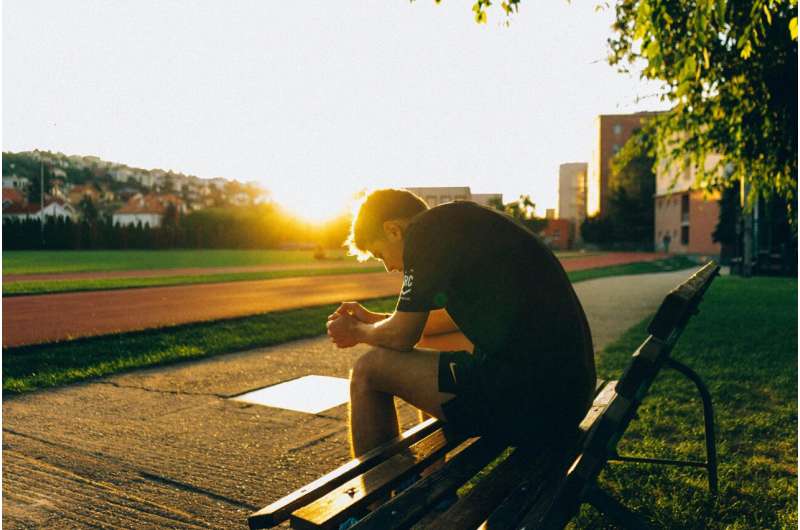This article has been reviewed according to Science X's editorial process and policies. Editors have highlighted the following attributes while ensuring the content's credibility:
fact-checked
trusted source
written by researcher(s)
proofread
Taking breaks from competing is key to athletic resilience—a sports psychologist explains

In sports psychology, elite athletes are often said to have two identities—a "self" identity (who they are overall) and an "athlete" identity (who they are as a competitor). Research has shown that the intensity of elite sport makes the athletic identity become a competitor's Achilles heel. They may feel that people only care about the athlete, not the person who has worked hard to become the athlete.
This is even more true in modern sport, where the athletic self is a brand. A sense of self-worth that relies entirely on optimum performance is not sustainable. When athletes start to think this way, they risk burning out.
Increasingly, high-profile athletes are making a point of taking a break from competing. Some have done so specifically for mental health reasons, such as Simone Biles, Naomi Osaka and Michael Phelps. Others for combination of physical and mental reasons, such as Roger Federer, Lewis Hamilton, Virat Kohli, Emma Raducanu and Rafael Nadal.
Some fans support this decision, while others denounce it. But taking a break is an important part of recovery.
Recovery is what happens when you take a break from competing. Taking a break enables physical recovery, such as muscle repair, energy replenishment, inflammation reduction, hydration and adequate sleep. It also enables mental recovery, for example, by reducing cognitive load, reducing stress hormones, improving emotional regulation and supporting neuroplasticity (the brain's ability to change and adapt with experience) and psychological detachment.
My research has shown that taking a break and spending quality time away from their sport—for example, enjoying time with family or friends—is crucial for athletes to develop resilience.
Athletes face many adversities in their careers. During this time, they develop "resilience resources" to form a kind of filter that reduces the effect of the adversity.
My research has shown that these resources include how athletes think of adversity ("is this a challenge or a threat for me?"), emotional regulation (their coping strategies to manage emotional upheaval), accessing social support (using support from coaches, partners and friends), sense of meaning (the significance of the sport to them) and mastery (how they isolate the things within their control).
The stronger these resilience resources, the less the athlete is hit with the full force of adversity. Sometimes, though, these resources get depleted. It is important to disengage from the public eye, take a break and replenish them. The strongest athletes know that great prowess is only possible when managed alongside adequate rest.
This article is republished from The Conversation under a Creative Commons license. Read the original article.![]()



















